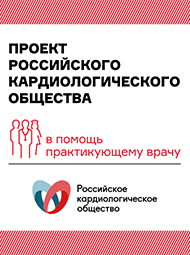Depression May Be Stroke Trigger in Women
Depression appears to be a risk factor for stroke among middle-age women, even after accounting for other variables, an Australian study showed.
Among women in their late 40s and early 50s who were followed for up to 12 years, meeting criteria for depression was associated with more than double the likelihood of having a stroke (OR 2.41, 95% CI 1.78-3.27), according to Caroline Jackson, PhD, and Gita Mishra, PhD, of the University of Queensland in Australia.
The relationship was partly explained by age, socioeconomic status, lifestyle, and physiological factors, but remained statistically significant after adjustment for those variables (OR 1.94, 95% CI 1.37- 2.74), they reported online in Stroke: Journal of the American Heart Association.
"Our findings contribute to the currently limited evidence on potential age differences in the association between depression and stroke, and suggest that the effect of depression may be even stronger in younger women," they wrote.
"Further research investigating age differences within the same cohort is needed, since the identification of such differences will have important implications for policy and practice," they continued. "In particular, this will inform the development of effective targeted prevention and intervention approaches."
Depression has been associated with a greater stroke risk in prior studies, but there is some evidence pointing to differences by age.
To explore the issue in middle-age women, the researchers turned to the Australian Longitudinal Study on Women's Health. The analysis included 10,547 stroke-free women ages 47 to 52 who were surveyed every 3 years from 1998 to 2010.
At each survey, depression was assessed using the Center for Epidemiological Studies Depression scale shortened version and an inquiry about whether the women were using antidepressants. The researchers classified women as having depression if they reported taking an antidepressant in the previous 4 weeks or they scored 10 or higher on the depression scale.
At each time point, roughly one-quarter of the women had depression. During follow-up, 177 had a first stroke.
The association between depression and stroke remained significant after adjustment for several factors, including age, socioeconomic status, hypertension, diabetes, heart disease, hysterectomy/oophorectomy, smoking, alcohol use, physical activity, and body mass index, and in sensitivity analyses using different definitions of depression.
"The association appears to be only partially accounted for by traditional stroke risk factors, highlighting the possible role of other novel risk factors, or biological mechanisms, such as the proposed neuroendocrine and immunological/inflammatory pathways," Jackson and Mishra wrote.
Although it has been proposed that antidepressants might increase stroke risk, the relationship between depression and stroke in the current study remained after individuals taking antidepressants were excluded.
The authors acknowledged that the study was limited by the use of self-report to identify most incident strokes, the possibility that some women reported transient ischemic attacks as strokes, differences between women who were and were not included in the study, a lack of information on the specific types of stroke, possible errors in measuring depression, and potential residual confounding by unmeasured factors, like hypercholesterolemia and atrial fibrillation.
Source: www.medpagetoday.com






